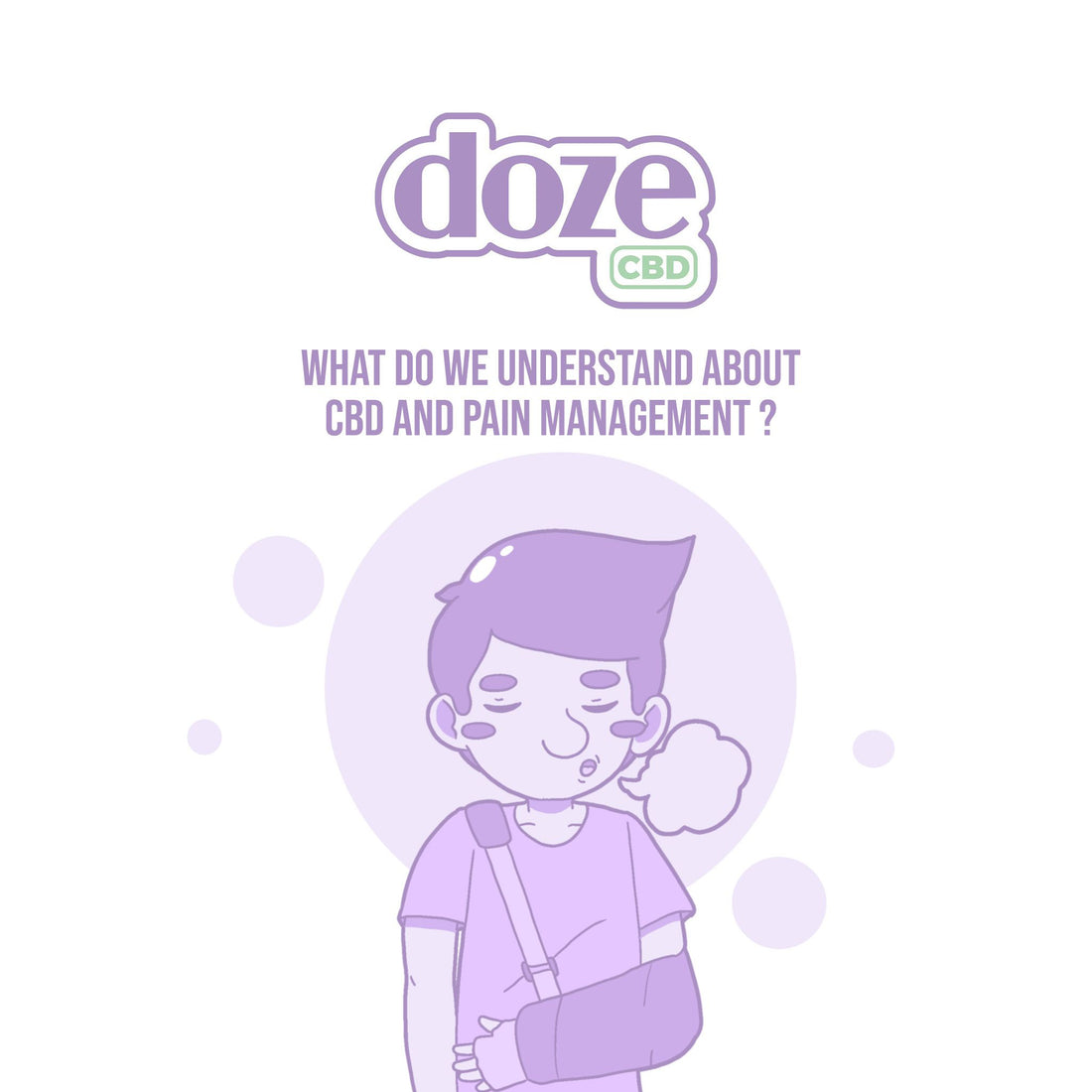
What Do We Understand About CBD and Pain Management?
Share
Pain can take so many forms, but none are easy to live with. From arthritis to irritable bowel syndrome, sciatica to migraines, fibromyalgia to sporting injuries that, even with time and rest, just won’t fade fully into the background, it’s estimated that around 28 million adults in the UK alone are suffering from chronic pain.
Beyond the restrictions it poses to our mobility and ability to live life as normal, chronic pain can have a significant impact on our mental and physical health. There are, thankfully, many options out there for pain management, from medications to physiotherapy, but no treatment is ideal for everyone, and many are still searching for the right approach to their pain.
In recent years, the CBD flower has gained a prominent reputation for its potential to ease pain. In fact, CBD is currently associated with an impressive list of other possible health benefits for both the mind and body. Research into this compound is still relatively limited but, even now, there are some impressive insights leading researchers to invest more time and more attention into CBD.
CBD, the ECS, and the Body
CBD reacts with the body in a unique way. So unique, in fact, that scientists are still in the process of mapping out quite how (and where) this reaction takes place. We do, however, understand something of this reaction…
The human body contains an endocannabinoid system (ECS), comprising many endocannabinoid receptors that are spread between the central nervous system, the digestive system, and the immune system. In other words, this system has a hand in many of the body’s core physical and cognitive functions. It helps maintain homeostasis within the body, taking over when something throws us off kilter. The body produces its own endocannabinoids, but CBD is chemically similar, and can also interact with the ECS.
As you probably guessed, this means that the ECS plays a role in pain and inflammation throughout the body.
One popular theory suggests that, when CBD enters the body, it helps to prevent the breakdown of the body’s own, naturally produced endocannabinoids, making us better equipped to deal with pain. CBD’s power as an anti-inflammatory is also thought to be a key factor behind anecdotal claims that it improves pain, since many pain conditions are caused by chronic inflammation throughout, or in specific parts of, the body.
Other benefits
There are plenty of treatments out there that are capable of reducing pain, and making chronic conditions easier to live with. At the same time, CBD offers something special, provided we can continue to unpack its potential and learn more about its unique interactions with the body.
Here’s why researchers are so eager to learn more about CBD as a treatment for pain:
-
CBD is non-addictive
Since it’s not psychoactive, CBD is not an addictive substance. This is a key concern when it comes to pain management, since common treatments like prescription opioids pose a very real risk of addiction, particularly for sufferers of chronic, long-term pain conditions. For this reason, CBD offers promise as a treatment for substance abuse. -
CBD has relatively few side effects
As with any supplement or medication, there are some side effects to look out for when you start using CBD. Some users, for instance, find that they experience dry mouth and fatigue, while others may not notice any side effects at all. Compared with a long list of prescription medications, the risk of serious side effects from CBD is pretty low, although it’s always worth reviewing things with your GP if you have any existing allergies or conditions. -
CBD is natural
The hemp flower is hardy, and can be grown in many parts of the world – and produce valuable hemp fibres, which can be woven into a strong and long-lasting textile. Compared with many pharmaceuticals, CBD is a simple, natural treatment for pain. -
CBD is non-psychoactive
CBD doesn’t affect the mind in the same way that THC, the other, better-known cannabidiol found in the marijuana plant, affects it. Some users report a sense of calm and relaxation, but this is very different to the ‘high’ we associate with weed users. -
CBD could also help with emotional health
Pain doesn’t occur in a vacuum. Pain sufferers frequently report a profound impact on their mental health and well-being, their sleep, and their appetite – all of which could be helped with CBD, if current research is anything to go by. You can read more about this our guide to finding the best CBD flowers for sleep.
It's exciting to think that CBD could find many applications in pain management, combatting associated sleep disorders, and helping sufferers to find that all-important stasis each day. It’s important not to jump the gun and give up your existing course of treatment for CBD, but talking to your GP about integrating it into your wellness routine is a great place to start.
3 comments
Thanks for sharing. I read many of your blog posts, cool, your blog is very good.
Thanks for sharing. I read many of your blog posts, cool, your blog is very good.
Your article helped me a lot, is there any more related content? Thanks!